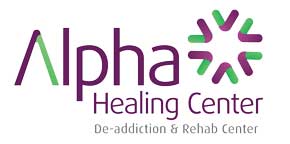Painkillers Addiction Treatment Rehab Centre
- Drug Addiction Treatment
- Painkillers Addiction Treatment
Fighting Painkillers Medicine Addiction
Painkillers are a type of drug that is used to relieve pain. The need for treatment for painkiller dependency has been rising sharply over the recent past in India. It is sometimes attributed to how easy some doctors hand out painkiller prescriptions.
Fortunately, whether your dependency originated after recreational usage or a physician’s prescription, recovery is possible.
What Are Painkillers?
Painkillers are drugs for releasing pain. These substances are addictive if used for a short time and physician’s supervision. However, recreational and prolonged use of painkillers often leads to dependency. Drug stores in India are full of pain relievers of various types and available in different brand names. You need to be extra careful with any pill you take. You can take painkillers:
● By injection
● Orally as capsules, tablets, or liquids.
● As suppositories (via tectum)
Here are the main types of painkillers:
NSAIDs: These are non-steroid anti-inflammatory drugs that include diclofenac, aspirin, ibuprofen, and naproxen.
Paracetamol.
Opioids: most opioids are strong painkillers. They are manufactured from the opiate plant. Opioids include dihydrocodeine, morphine, Codeine, pethidine, oxycodone, and tramadol.

How Do Painkillers Work?
Painkillers work by blocking body processes that produce the feeling of pain. From the spot where you hurt yourself, electrical signals travel up the brain why the spinal cord. The signals alert the brain to respond to the problem quickly. That’s why when you touch something hot, you remove your hand from it quickly.
While pain hurts so much, it’s important since it protects us from prolonged damage. However, excessive pain is also very dangerous.
At the spot where the pain starts, for example, a fractured bone or band finger, the body makes various chemicals, making you feel pain. The body also increases blood flow to the area, including blood that fights diseases commonly known as white blood cells. White blood cells contain many chemicals, including prostaglandin, which increases swelling (inflammation) and pain.
Painkillers work by stopping the body from producing prostaglandins. When you take pain relievers, they dissolve in your stomach and are absorbed into the blood. The blood reaches both the brain and the painful spot, and it starts relieving the pain.
Some Obvious Signs of Painkillers Addiction
Whether opioids, paracetamols, or NSAIDs, are habit-forming and prolonged use leads to psychological and physical dependence. After some time, you develop tolerance (the need for higher doses and at more frequent intervals to achieve the same effect as before).
Having developed dependency, you experience severe withdrawal symptoms when you stop taking the drugs. Painkiller withdrawal symptoms include:
Symptoms
- Abdominal cramping
- Vomiting
- Nausea
- Tremors
- Dilated pupils
- Depression
- Drowsiness
- Anxiety
- Irritability
- Slurred speech
- Poor decision-making
- Mood swings
- Poor coordination
Who Is At Risk?
Painkillers are a common pain treatment, but they can also cause dependence.
It’s not easy to tell who is at risk for painkiller dependence.
Mental and substance use disorders are complex illnesses that can arise out of any situation, including genes and lifestyle. However, some people may become dependent on these drugs if they take them for too long or in high doses. Most mental health experts agree that some people are at a higher risk of getting hooked.
Tobacco, alcohol, and other drug users: anybody with a history of struggling with other addictive substances is a risk for painkiller dependence.
Mental illness: mental conditions such as depression, borderline personality, and bipolar, post-traumatic stress disorder (PTSD), schizophrenia, and anxiety increases your odds. While prescription painkillers help ease pain, for example, after losing your leg, you may continue abusing them even when you should stop use. The PTSD that may ensure can cause you to keep taking the pills.
Family history: while it is still debatable, research strongly suggests that people who abuse substances have inherited genetic compositions that put them at higher risk.
Age: Young people, commonly between 18 and 35, are more likely to get hooked on prescription painkillers. These people like to experiment. They try painkillers as a way of getting “high” or even as a stimulant to study longer or better.
Treatment Options
Painkiller use disorder is a serious mental problem that needs a qualified medical professional’s attention to help you recover. There are two main types of care for mental health conditions: outpatient and inpatient treatment.
Outpatient care: While you may have developed a dependency on painkillers and hence need professional help, the nature of your work and other family responsibilities may not allow you a lot of time to concentrate fully on something else. This is where inpatient care comes in handy.
If you choose an outpatient painkiller treatment program, you will only need to spend a few hours daily or on specified days of the week to attend treatment. You spend your nights at home. Outpatient treatment plants aren’t structured. Hence, your therapist may allow you to attend therapy on weekends, in the evening after work, early in the mornings, or during lunchtimes. This form of care may be ideal for patients with mild painkiller use disorder.
Inpatient care: Inpatient treatment programs offer the best results. While your condition may not be severe, having a team of professionals around you, helping you fight your disease 24/7 can give you the extra support you need for quick recovery.
Inpatient or residential care is more intense than outpatient treatment. While outpatient clients spend their night at home, inpatient care requires patients to spend their days and nights in the treatment facility. This means you will relocate to the treatment center and stay there during the entire time allocated for your treatment. However, some treatment facilities allow you to begin with intensive inpatient treatment and a letter graduate to outpatient care as your situation gets better.
Programs for treating painkiller use disorder under inpatient therapy involve intensive forms of counseling, medications, and behavioral therapy.
Counseling or therapy with a mental health expert at an inpatient treatment facility will help you deal with any social or personal issues that may be contributing to your painkiller use or worsening it. This may include:
● Your self-esteem
● problems with your boss at work or with your spouse at home
● family, friends, colleagues, and other people close to you who abuse alcohol or drugs
● a past traumatic event that you wish to forget
Your therapist may design a treatment program best suited to your needs and may include one or a number of these options:
Contingency management: this treatment strategy uses rewards and incentives to motivate you to stick to treatment.
Motivational interviewing: this treatment plan aims to identify why you might be unwilling to stop the use.
CBT (cognitive behavioral therapy) helps you address unhealthy thinking patterns that cause you to use painkillers. It also helps you build health beliefs besides teaching you how to withstand triggers.
Family therapy: family therapy brings together your loved ones to boost your treatment.
12-step programs and support groups: these are meetings that involve defined goals. From such programs, you get to interact and learn from others who are walking in your shoes.
The Bottom Line
While painkillers may come in handy when you are in agony, these substances have a myriad of side effects, including dependents. Work closely with the physician if they have prescribed any pain killers. Bring any risk factors you might have to your doctor’s attention and follow their advice to the latter.
Nevertheless, if you have already developed a dependency on prescription painkillers or over-the-counter pain relievers, over-the-counter get in touch with us for help. Alpha Healing Center is an inpatient treatment facility and has all it takes to help you live a drug-free life. You don’t let painkillers continue to control your life. Seek help now!
Confidential Form




